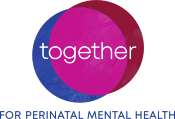Jillian Bechtold M.OMSc, rKin, BSc
Owner of JB Osteopathy ltd.
The time surrounding pregnancy and the initial year after giving birth, known as the perinatal period, is a significant and delicate stage for both parents and their babies. It is essential to prioritize the well-being and optimal health of both the birthing parent and child during this pivotal phase, as it can have long-lasting effects on their overall health.
Osteopathy is a form of manual therapy that focuses on the musculoskeletal system and its impact on the overall health of an individual. Osteopathic Manual Practitioners view the body as a whole complex structure, where optimal function relies on proper movement and alignment of its components. It is also recognizing that the body has innate self-regulating and self-healing mechanisms. This means that the job of an osteopathic manual practitioner is to aid in re-establishing proper body mechanics and circulation so the body can function as it was intended. When it comes to perinatal health, osteopathy can play a significant role in several ways:
1. Relieving Pregnancy-Related Discomfort: Pregnancy often brings about various physical changes, including postural adjustments, hormonal shifts, and increased strain on the musculoskeletal system. Gentle techniques can relieve tension, improve joint mobility, and realign the body, thereby reducing pain and enhancing overall comfort. A few common discomforts seen in clinic are back pain, sciatica, carpal tunnel syndrome, leg fatigue, and plantar fasciitis.
2. Preparing the Body for Labor & Promoting Optimal Fetal Positioning: Osteopathic techniques can help prepare the body for labor by optimizing pelvic alignment and mobility. By ensuring proper alignment and balance within the pelvis and surrounding structures, osteopathy can enhance the baby’s positioning for birth and potentially contribute to smoother delivery and reduce the need for interventions.
3. Enhancing Circulation and Lymphatic Drainage: Osteopathy supports optimal blood circulation and lymphatic drainage, which are crucial for maintaining a healthy pregnancy. By improving these processes, osteopathic treatment may help reduce swelling, edema, and the risk of conditions such as varicose veins.
4. Facilitating Breathing and Relaxation: Osteopathic techniques that focus on the rib cage and diaphragm can improve respiratory function and promote relaxation. This can be particularly beneficial for expectant parents who may experience shortness of breath due to the pressure exerted by the growing uterus on the diaphragm.
5. Supporting Postpartum Recovery: Postpartum recovery involves restoring the body’s strength, function, and overall well-being after childbirth. Osteopathy can aid in this process by addressing musculoskeletal imbalances, promoting optimal healing, and providing support for the body as it adjusts to the physical demands of caring for a newborn. Torn and strained tissue requires healthy blood flow for proper healing and carrying around a tiny human all day certainly takes its toll on the back, shoulders, and neck.
6. Addressing Infant Health Concerns: Osteopathic techniques can address common conditions such as colic, reflux, feeding difficulties, gassiness, and sleep disturbances. By gently manipulating and rebalancing the infant’s body, osteopaths can help promote better physiological function and overall well-being. Even if all is well, I recommend an osteopathic appointment for a general checkup to make sure the child’s anatomy is moving and functioning as it should and to bring peace of mind to the parents.
Osteopathy recognizes the interconnectedness of the body, mind, and emotions. By alleviating the physical pain and thereby reducing the levels of stress hormones, it can help individuals experience an improved overall well-being and better sense of ease in the bodies. Moreover, enhancing circulation and reducing muscle tension can encourage better oxygenation and nutrient supply to the brain which can have a positive impact on mood, cognition, and emotional resilience. Not to mention, if parent and child are comfortable, they are more likely to have quality sleep and a happier disposition overall.
JB Osteopathy ltd. is a family centered osteopathy practice located in the Victoria park area of Kitchener. The “Newborn Osteo Care Initiative” was created to normalize preventive care from an early age in order to ensure that infants have a strong and healthy foundation. This initiative provides free initial osteopathic appointments to newborns within the first month of life. More information about this program can be found at www.jbosteopathy.com.



